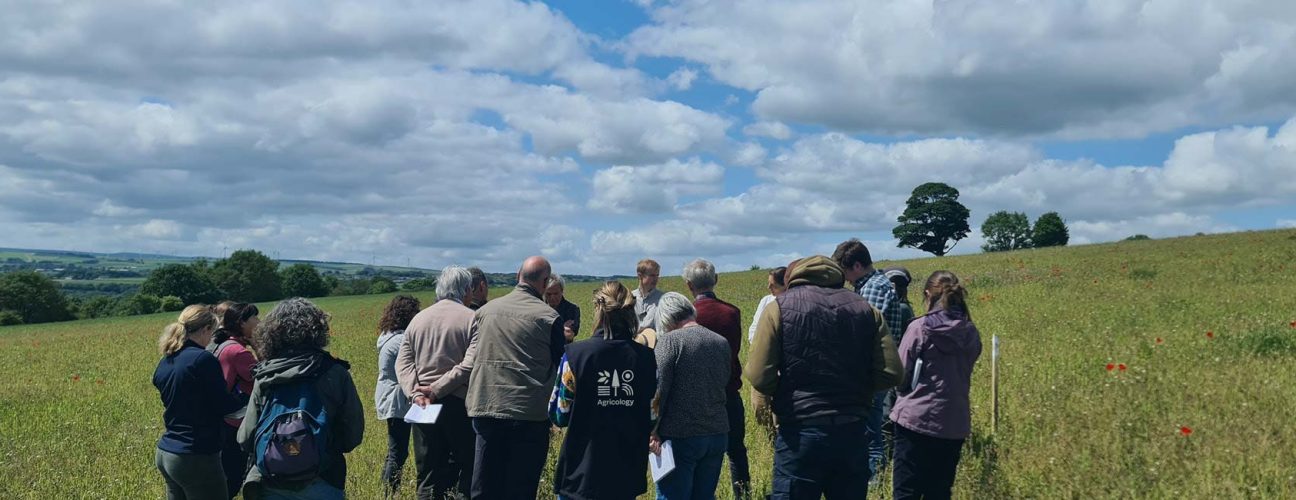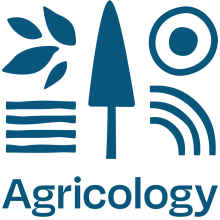Agricology’s 10 Year Anniversary
Highlights from Agricology’s first decade
Our official launch in November 2015 marked the partnership of our three founding organisations; Organic Research Centre (ORC), Daylesford Foundation, and the Game & Wildlife Conservation Trust (GWCT) and the bringing together of a steadily expanding variety of information on our website. This was and continues to be as a result of working closely with our partner organisations, farmers, and other key players in the industry. Representing diverse farming approaches and uniting science, research and practical experience to highlight agroecological principles and practices that can be applied in the field is how we endeavour to encourage the take-up of practices that enhance and protect the environment and increase the resilience of farm businesses. Take a walk through our timeline and explore some highlights – true to our core there should be something for everyone!
Nov 2015 – Oct 2016
Forging partnerships and taking to the field
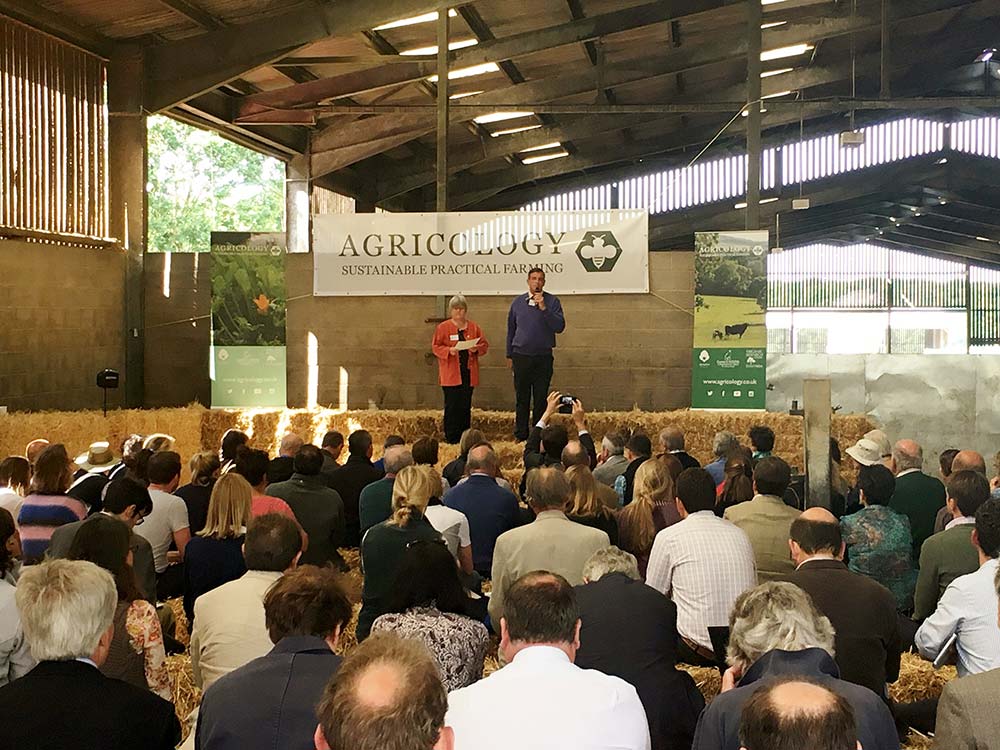

Nothing beats exchanging information in-person, and preferably in a field! We held our first open day in 2016 at Daylesford Organic Farm in Gloucestershire. It brought together a variety of speakers from our partner organisations such as Defra, Natural England, the GWCT’s Allerton Project, Innovation for Agriculture, LEAF, FAI Farms, Innovative Farmers, the ORC , and Fit for the Future. It featured a diverse range of talks organised around a farm tour, providing an opportunity to discuss concepts and practices linked to information hosted on our website and to show how they could be applied practically. This is a recipe we have continued to refine over the years…

Ted Green’s 2016 blog about tree hay continues to be Agricology’s most visited web page!
Featured content
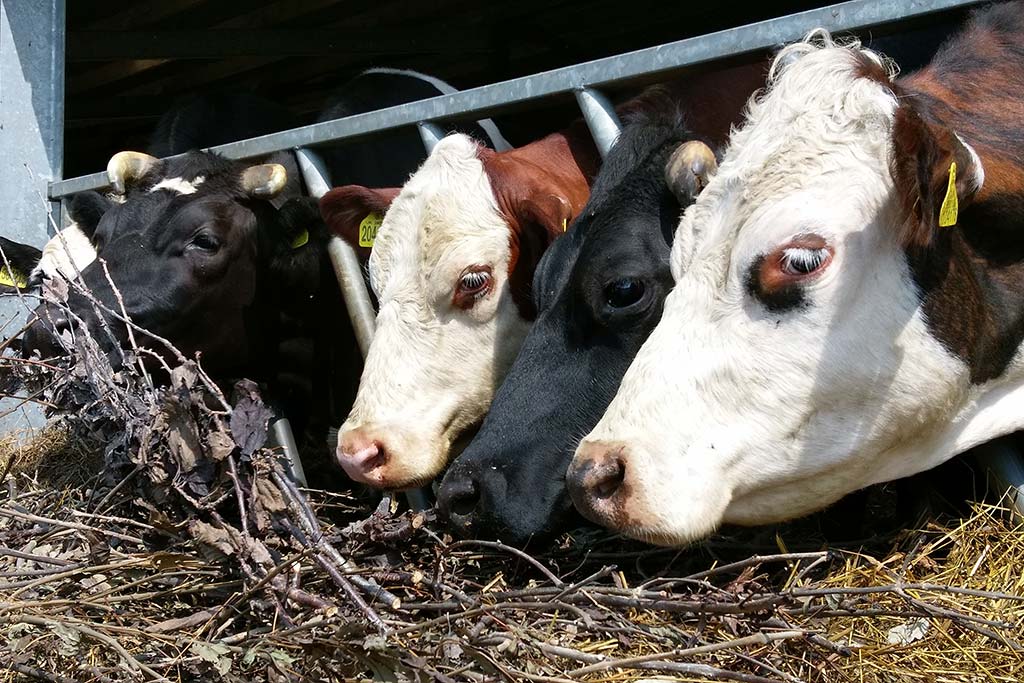
BLOG
Tree Hay: A forgotten fodder
Ancient Tree Forum’s Ted Green gives a brief history of tree hay and its role as fodder, and asks what role tree hay can play in modern livestock farming.
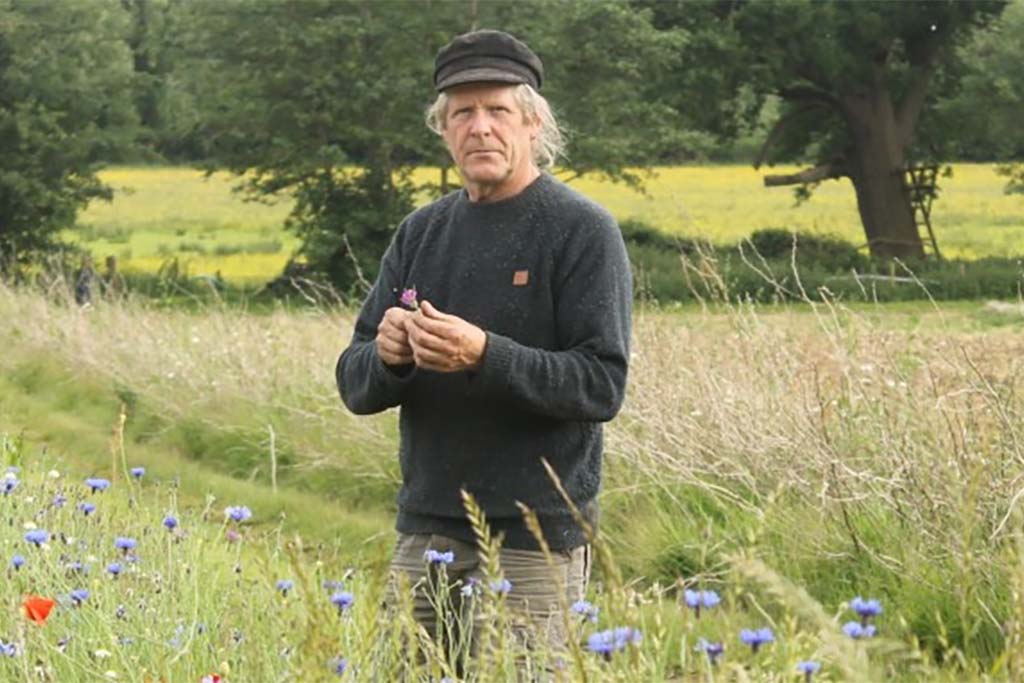
FARMER PROFILE
Iain Tolhurst (Tolly)
“Tolhurst Organic is one of the longest running organic vegetable farms in England. Hardwick was the first to attain the ‘Stockfree Organic’ symbol in 2004.”

DOWNLOAD
Beekeeping and sustainability
This Bees for Development factsheet will help increase understanding of what constitutes sustainable beekeeping and help you implement beneficial management techniques.
Nov 2016 – Oct 2017
Uniting research with demonstration
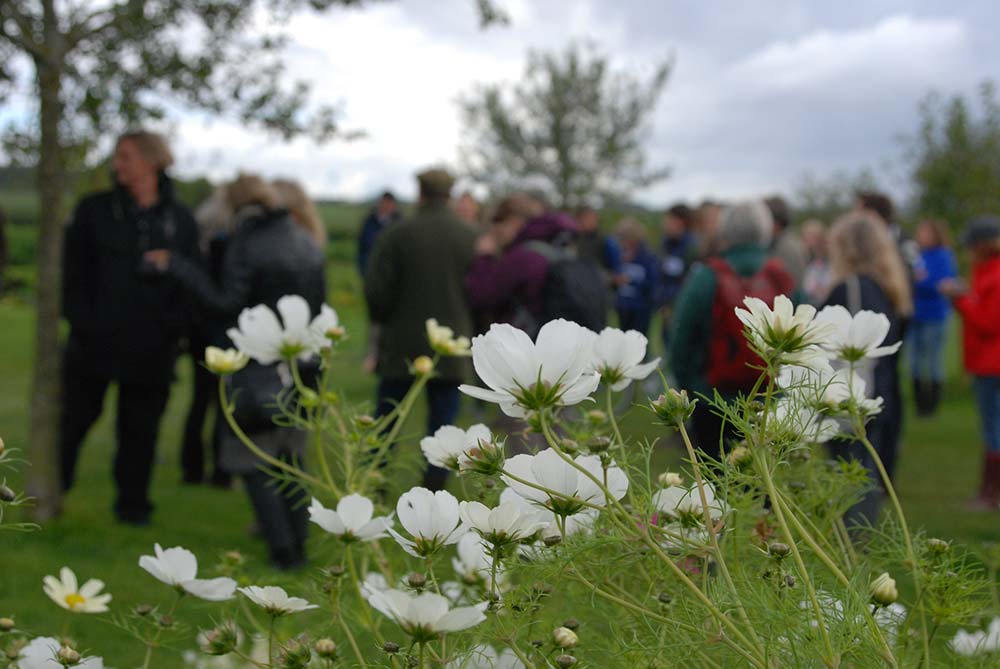

One example of working closely with our partner and founding organisations to disseminate and communicate research that could be applied practically in the field is collaborating with the Allerton Project, the GWCT’s groundbreaking research and demonstration farm at Loddington, Leicestershire in helping them to produce a series of reports (in 2017), with support from the Frank Parkinson Agricultural Trust. The reports focused on reduced tillage, organic matter, managing biodiversity, encouraging soil biota, cover and companion crops and sustainable control of crop pests.

This year we uploaded 72 new resources and 54 blog posts. One of these – Blackgrass: the potential of non-chemical control – quickly became one of our most popular resources
Featured content
DOWNLOAD
The Benefits of Sheep in Arable Rotations
Invaluable National Sheep Association publication on how incorporating sheep within arable farming systems can rejuvenate soils, reduce problem weeds, improve biodiversity, and improve crop yields.
VLOG
Rearing turkeys for Christmas
A look back to 2016 with Richard Smith from Daylesford Organic Farm discussing rearing turkeys for Christmas in what was one his many ever-popular video blog updates.
BLOG
Companion crops are a farmer’s friend
Ian Wilkinson of Cotswold Seeds and FarmED fame extols the benefit of increasing on-farm diversity and introduces companion cropping as a means to achieve this.
Nov 2017 – Oct 2018
Informing practice and policy
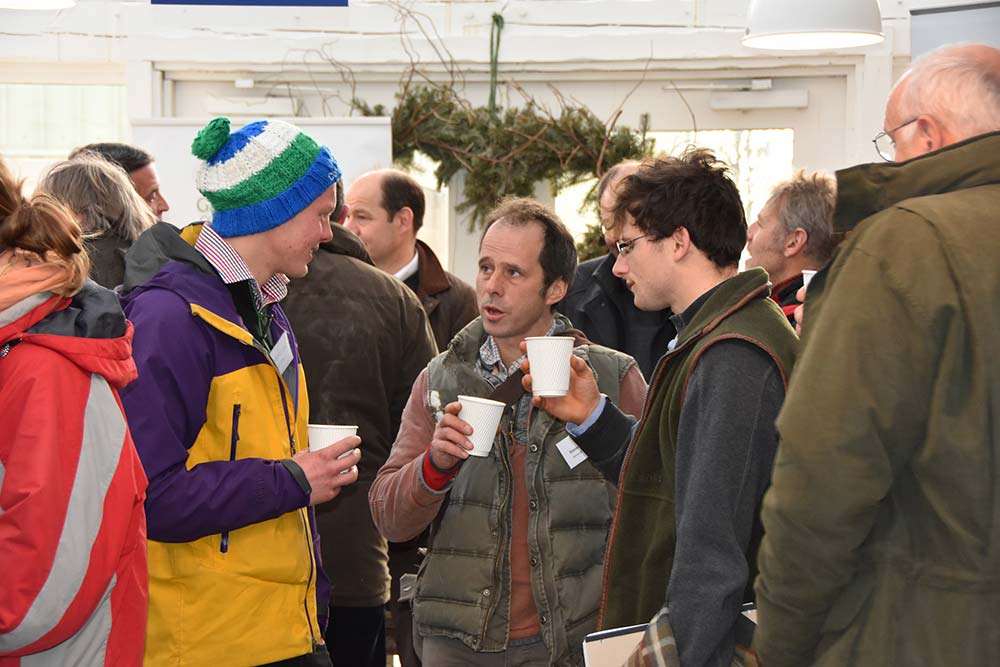

2018 marked the first year of us having a stand at Groundswell and the launch of our in-person field days. In response to the Defra consultation paper Health and Harmony: The Future for Food and Farming in a Green Brexit, Agricology prepared a paper outlining ways the team (represented by the three core partners) believed Agricology could support Defra in achieving its aims, highlighting key actions to help UK farmers become more sustainable. A project funded by Defra in the same year Opportunities, Barriers and Constraints for Organic Management Techniques to Improve Sustainability of Conventional Farming was a great example of one of Agricology’s core aims (of identifying how one farming approach and practice can inform another), and of several of our key partner organisations working together. Factsheets from the project were published on Agricology for dissemination across the wide community of farmers.

The Agricology website broke the 100k view mark – receiving a total of 130,256 page views across the year!
Featured content
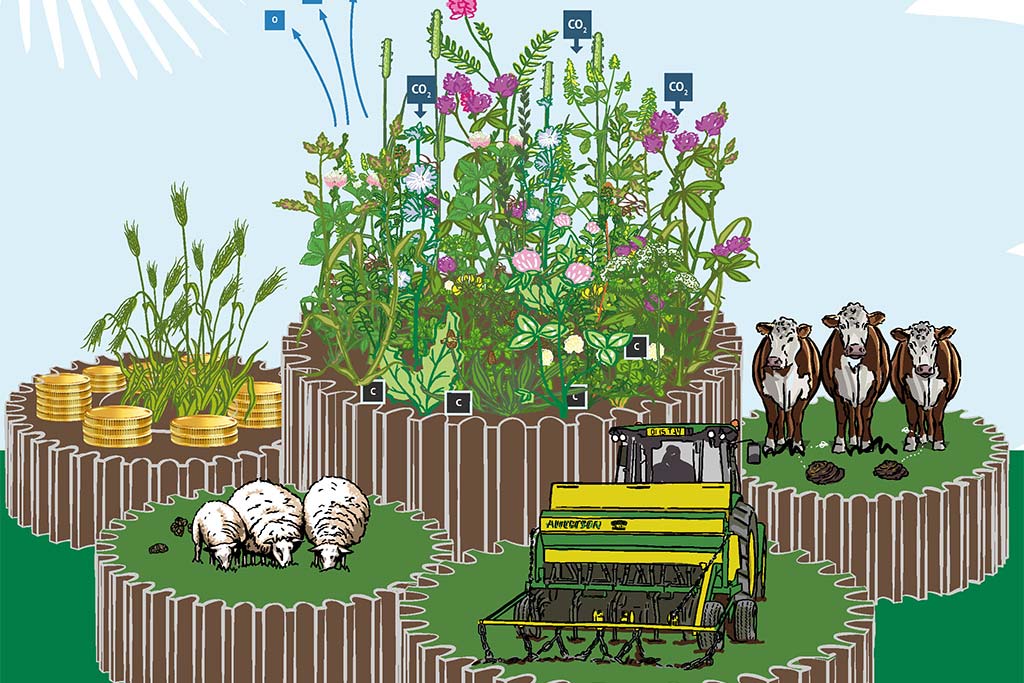
DOWNLOAD
The Herbal Ley Farming System
A vital farmer’s guide to herbal leys… focusing on the many benefits of this low input farming system, as well as advice on sowing and growing.

DOWNLOAD
Climate-Friendly Practices on Your Farm – A Practical Manual
Recommendations from the SOLMACC project for implementing climate-friendly and resilient farming practices on-farm.
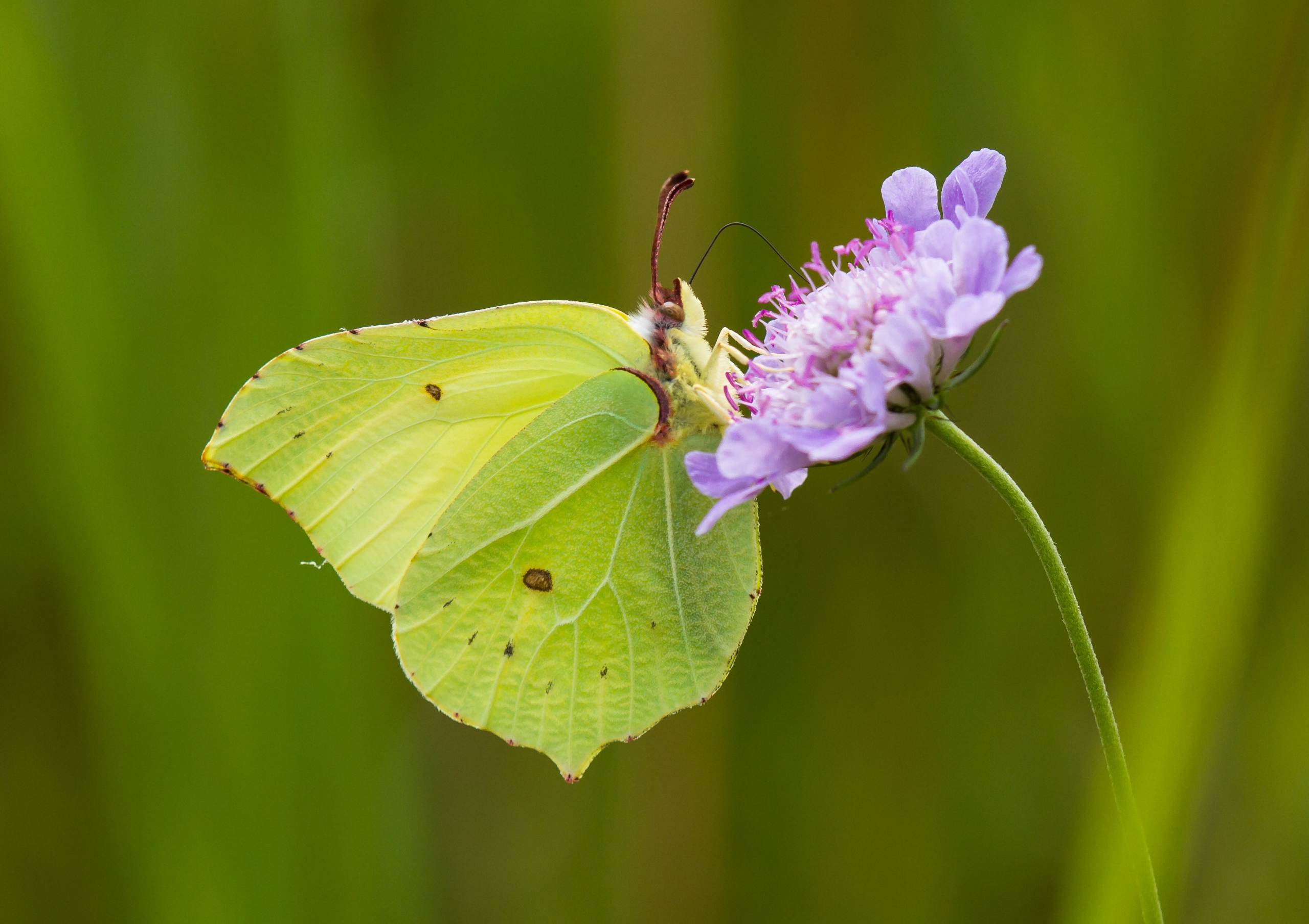
DOWNLOAD
Invertebrate conservation
One of several chapters from WildCRU’s Wildlife & Farming wonderful handbook summarising information on creating and managing habitats for invertebrates on farmland.
Nov 2018 – Oct 2019
Facilitating discussion and engagement
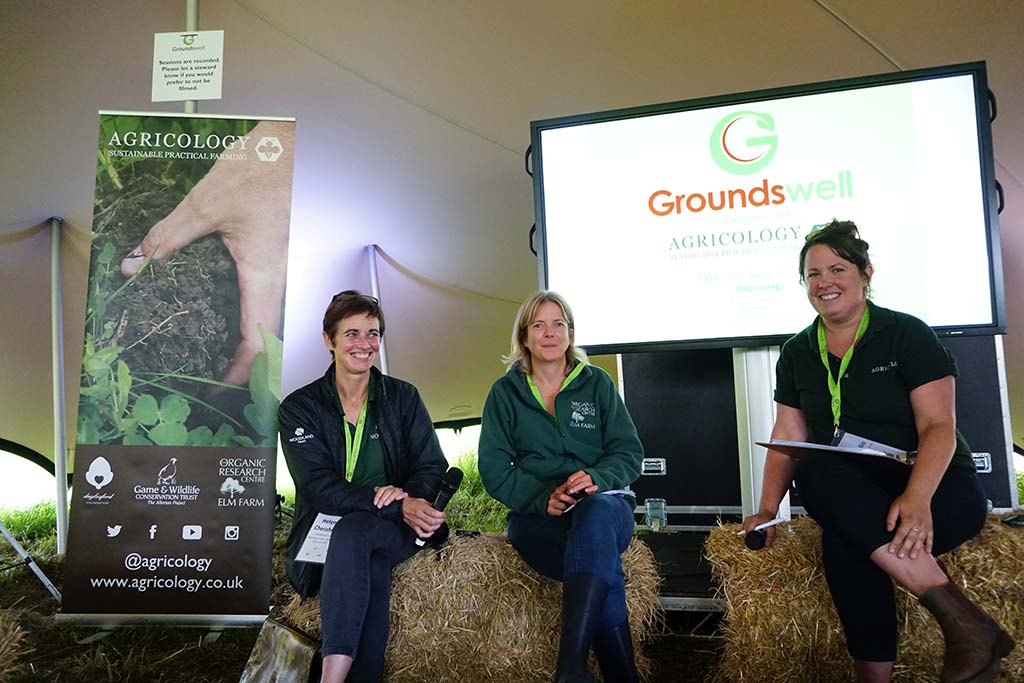

In 2019, we hosted the Agricology discussion tent at Groundswell for the first year and ran the Agroecology in Practice room at the Oxford Real Farming Conference. Over the course of 2017, 2018 and 2019, we were fortunate to work with several volunteer copywriters who made valuable contributions to our content. Here is a blog written by one such volunteer, Pen Rashbass, giving her take on Groundswell 2019. Read a blog from our most recent ORFC experience here.

Agricology hosted a total of 26 talks and panel discussions across both Groundswell and ORFC in 2019 featuring over 40 farmers, researchers and advisors
Featured content
BLOG
Dung beetles: Keeping pasture healthy and livestock happy
Fascinating blog from Ceri Mann, founder member of the Dung beetle UK Mapping Project who wrote about the many benefits of dung beetles and what can be done to encourage them on farmland.
FARMER PROFILE
Neil Heseltine
“Our overall philosophy is that farming within natural processes is important for the health and welfare of our livestock, environmentally, and in terms of biodiversity, but it is also the most profitable way as well…”
Oct 2019 – Nov 2020
Responding to change and reaching out
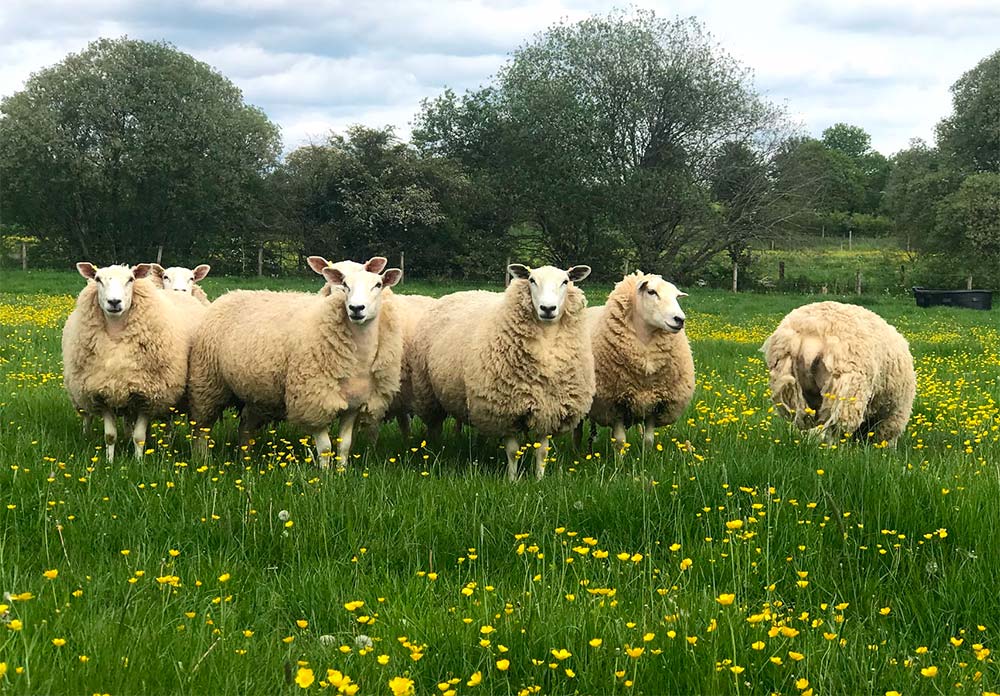

Lockdown with Covid-19 precipitated us joining with our partners to take farm walks, shows, conferences and meetings into the digital world, bringing together farmers, researchers and advisors in conversation in webinars, videos and podcasts. This included a series of virtual field days focused on different practices and themes that materialised through collaboration with the Soil Association, Innovative Farmers, FABulous Farmers, LEAF, CFE, FWAG, Duchy College, Rothamsted Research, University of Reading, ORC, OF&G and NIAB. Two virtual field days exploring the practicalities of growing, establishing and managing herbal leys were particularly popular. We continued to create valuable resources allowing farmers and researchers to share their knowledge and experiences so others can learn from their successes and mistakes. One project we worked on with ORC was focusing on farm system health. Here is one of our profiled farmers the fabulous John Pawsey giving us some insight into the principles of how he achieves health on his farm.

Agricology’s social media followers grew in number from 10,455 to 14,044 in this period, representing a 34% increase!
Featured content
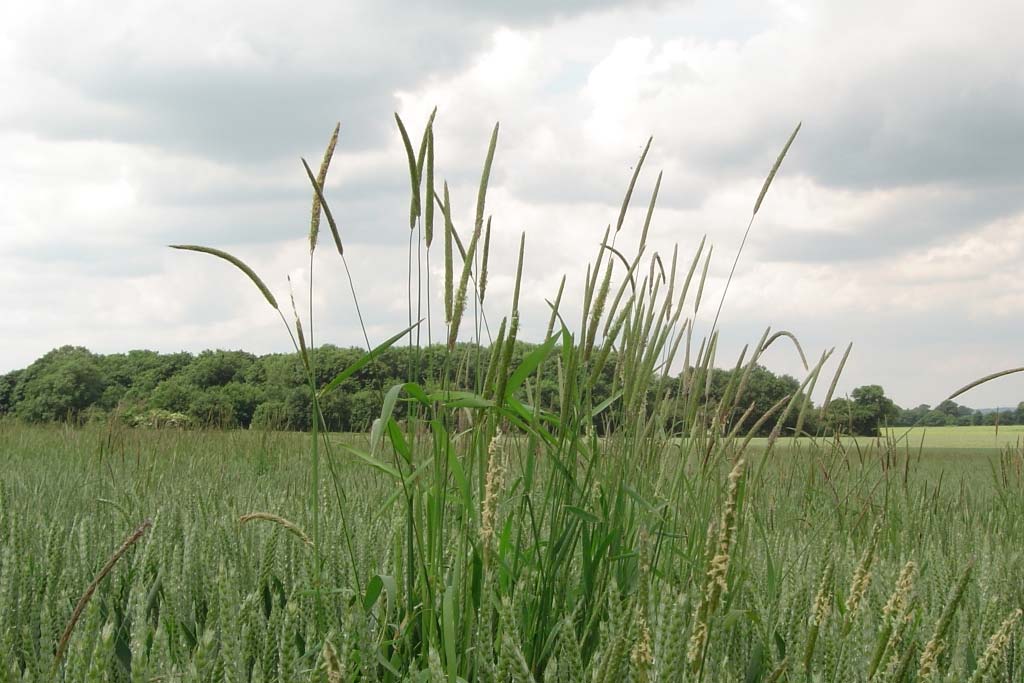
BLOG
Black-grass: what’s the problem, what’s the solution?
Stephen Moss explains the reasons behind why black-grass has become more problematic in the last 50 years and suggests various methods of control.
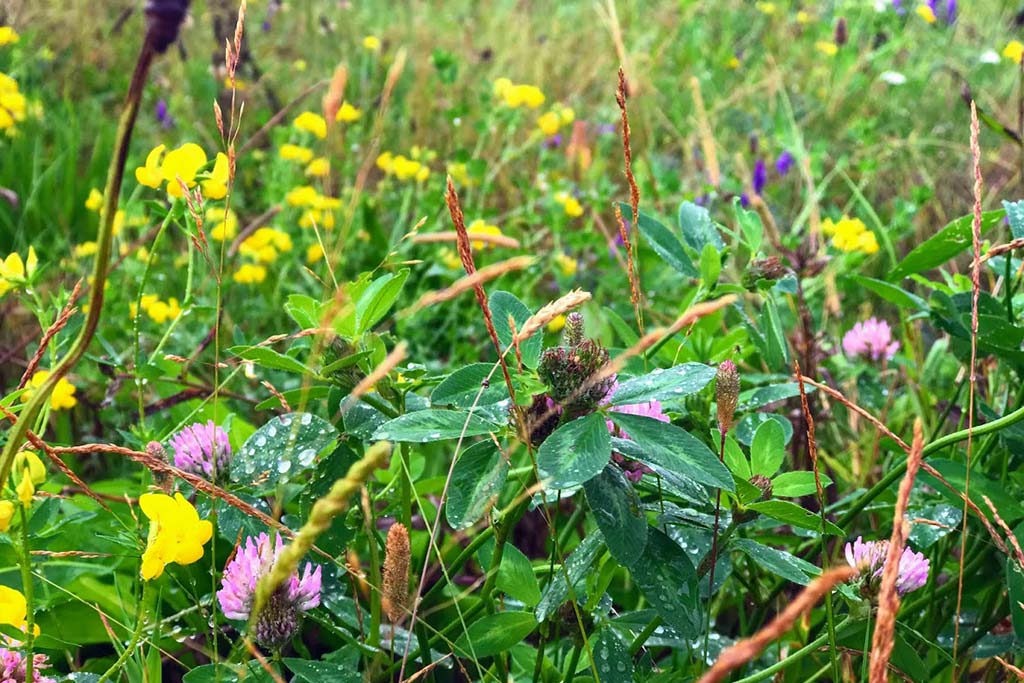
WEBINAR
Herbal Leys Webinar Series
Footage of four webinars exploring issues surrounding herbal leys; a collaboration between the AHDB and British Grassland Society and involving various UK farmers.
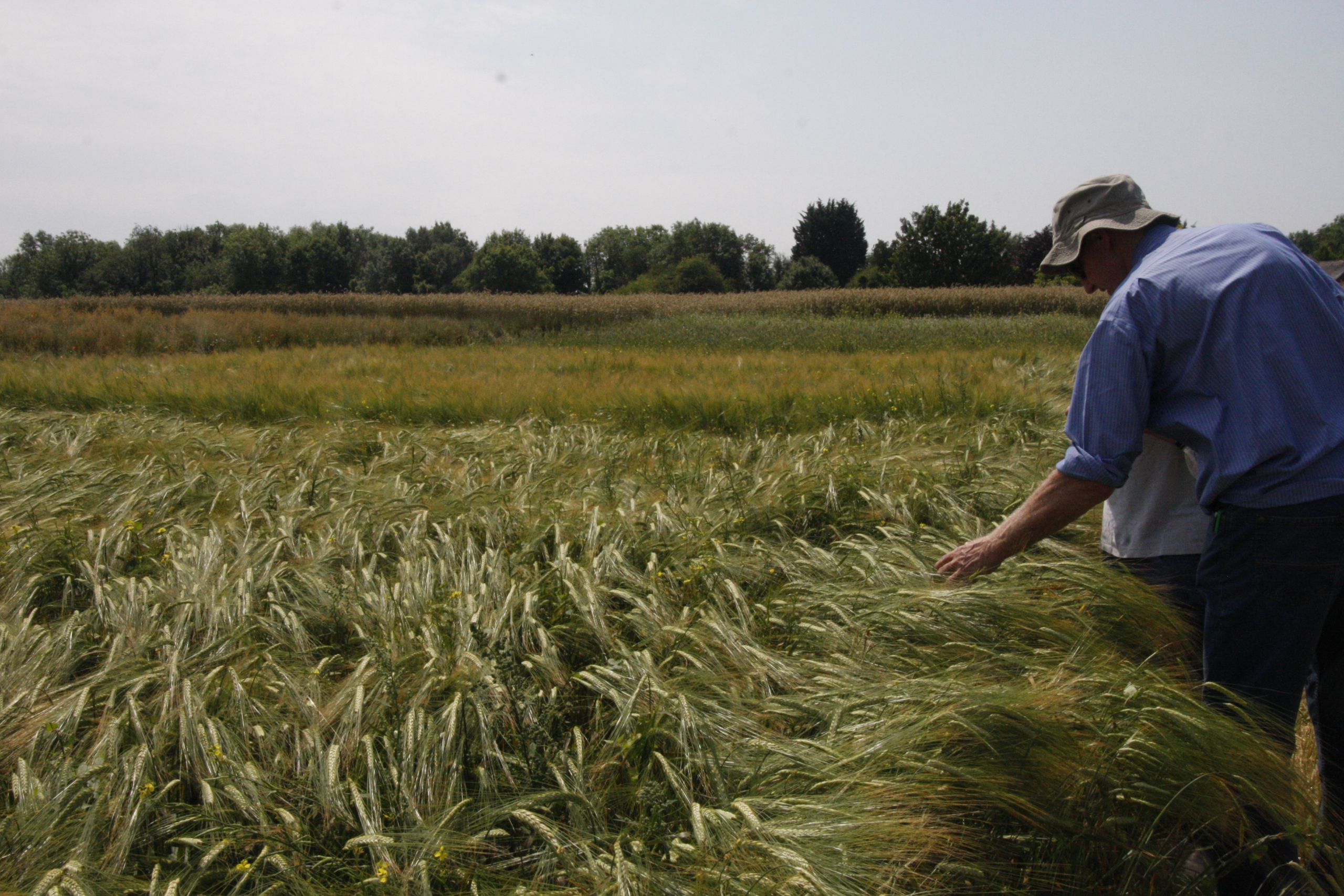
DOWNLOAD
Guidelines for on-farm variety testing
A quick reference guide produced as part of the LIVESEED project for farmers interested in carrying out some on-farm variety testing and needing some basic guidance.
Nov 2020 – Oct 2021
Improving the ways we communicate
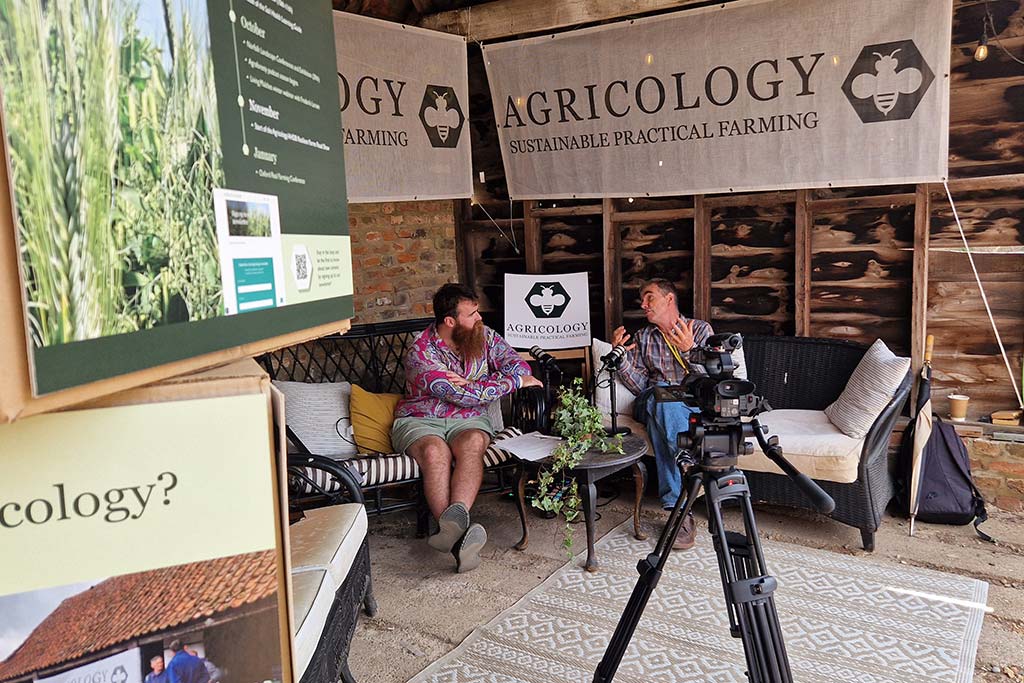

In partnership with University of Reading and CCRI, the Agricology team conducted an ELM test to explore the potential role of videos and podcasts in supporting farmers transitioning to ELM, looking at how they might be used in the delivery of advice to farmers (based on a literature review, analysis of Agricology’s video/podcast channels, and a survey involving farmers and focus groups). Read the report here. Our Podcast, launched in 2020, built on us continuing to explore potential ways of exploring complex, topical themes in an engaging format that do not rely on face-to-face contact, offering insights from farmers, researchers, advisors, and innovators in the field. They have gained increasing popularity as a means for farmers, advisors and researchers to share knowledge and practical experiences with agroecological farming.

Agricology hosted a total of 26 talks and panel discussions across both Groundswell and ORFC in 2019 featuring over 40 farmers, researchers and advisors
Featured content
FARMER PROFILE
Bill & Cath Grayson
“One of our main concerns is delivering optimum results for both animals and nature by maintaining a balance and preventing woodland and scrub from overwhelming the grassland…”
BLOG
Living mulches for sustainable cropping systems: A step towards ‘Regenerative Organic’ Agriculture in the UK?
Dominic Amos asks if establishing a perennial soil cover could offer a practical solution to reducing inputs and having more sustainable cropping systems.
DOWNLOAD
Silage sorghum, an alternative to silage maize
Growing different forage crops with varying drought stress tolerance can increase resilience to weather extremes. Here are some practical recommendations for producing silage sorghum based on research carried out as part of the DiverIMPACTS project.
Nov 2021 – Oct 2022
Responding to change and reaching out
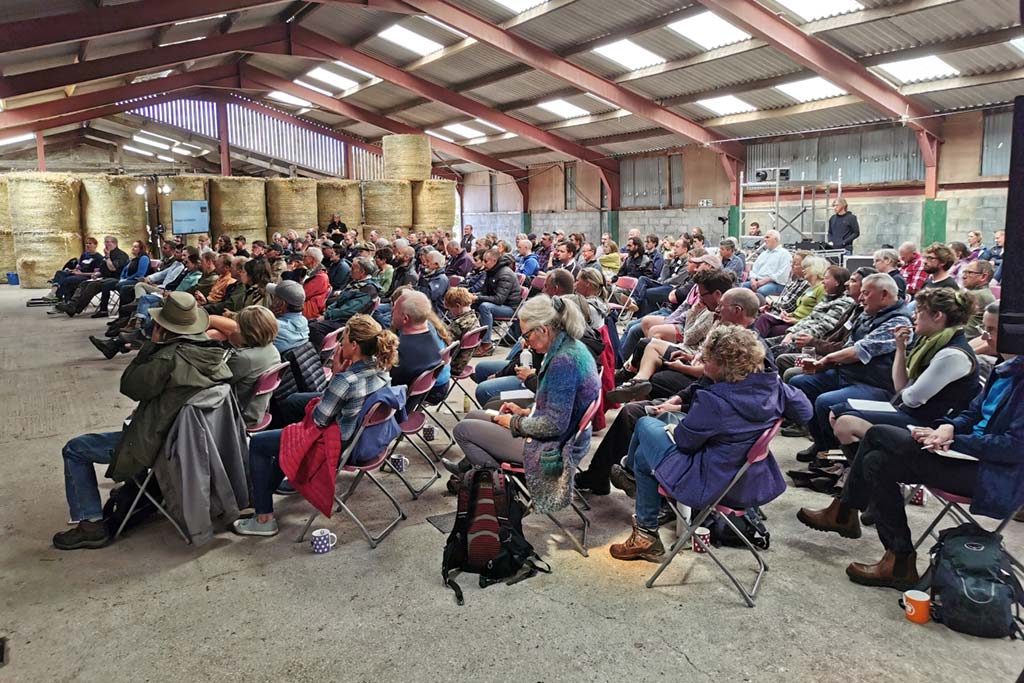

For a couple of years, we were joint sponsors of the Carbon Calling conference (launched in 2022) – a regional spinoff of Groundswell in Cumbria – with more of a ‘pasture’ focus. One of the co-founders Nic Renison explains in a blog the importance of bringing learnings home… “When you start seeing things differently, things you never even noticed before stop you in your tracks and it becomes difficult to ‘unsee’, whether that’s the topsoil running down the road after heavy rain, over grazing, or your neighbours spraying the verges…” We see one of our main priorities as being to help communicate these learnings.
2022 was also the first year of our involvement with the Oper8 project, a European wide project but with a regional emphasis in the UK that involved trialling how cereal growth habits, yields, straw production and weed competitiveness compare. See a video produced here.

We published a profile of the Barbour family in Perthshire – now one of Agricology’s top 3 most visited profiles
Featured content
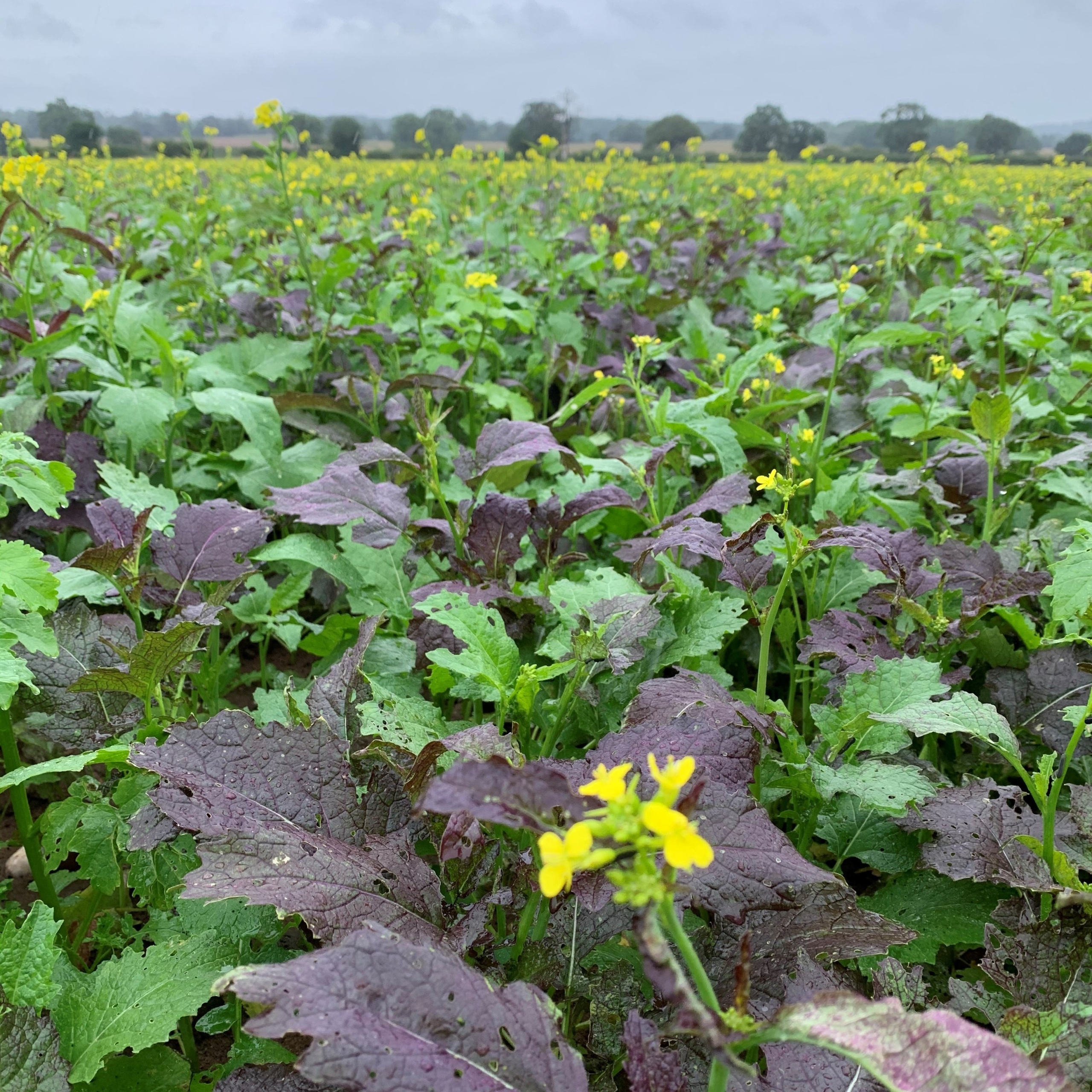
DOWNLOAD
The potential of biofumigation to control soil borne pests, pathogens and weeds
An DiverIMPACTS project output exploring the practicalities of applying the interesting technique of biofumigation to help with pest and weed control.
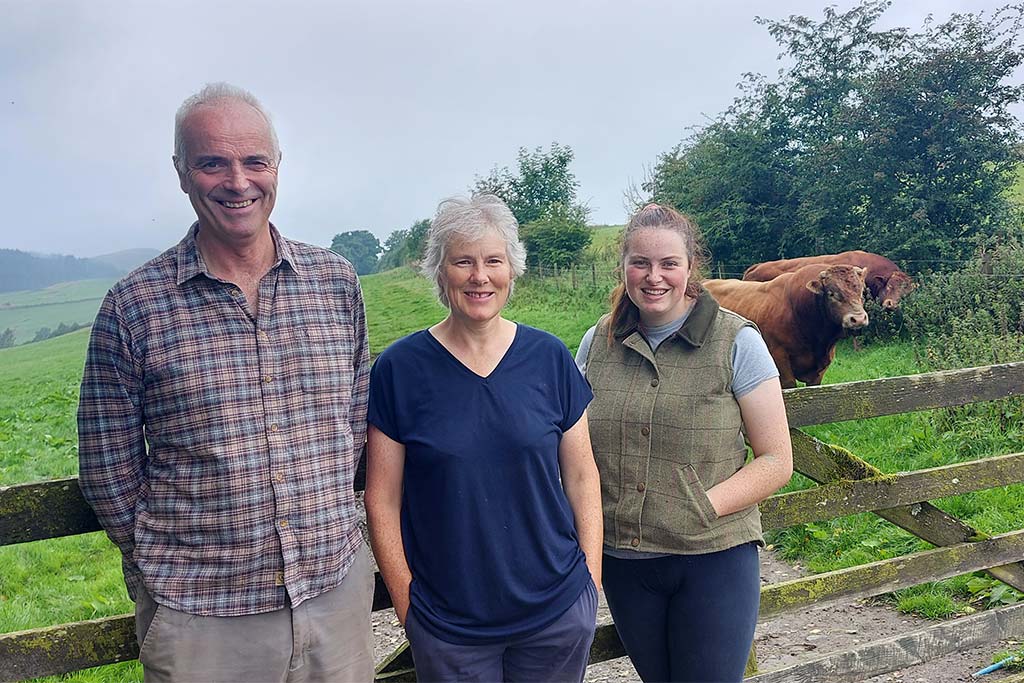
FARMER PROFILE
The Barbour family
“Our focus is now on woodlands you can graze animals through and designing them that way – and we have gone from more of a biodiversity interest to focusing on carbon, together with the big benefits of wood pasture giving animals shelter and providing early grass”
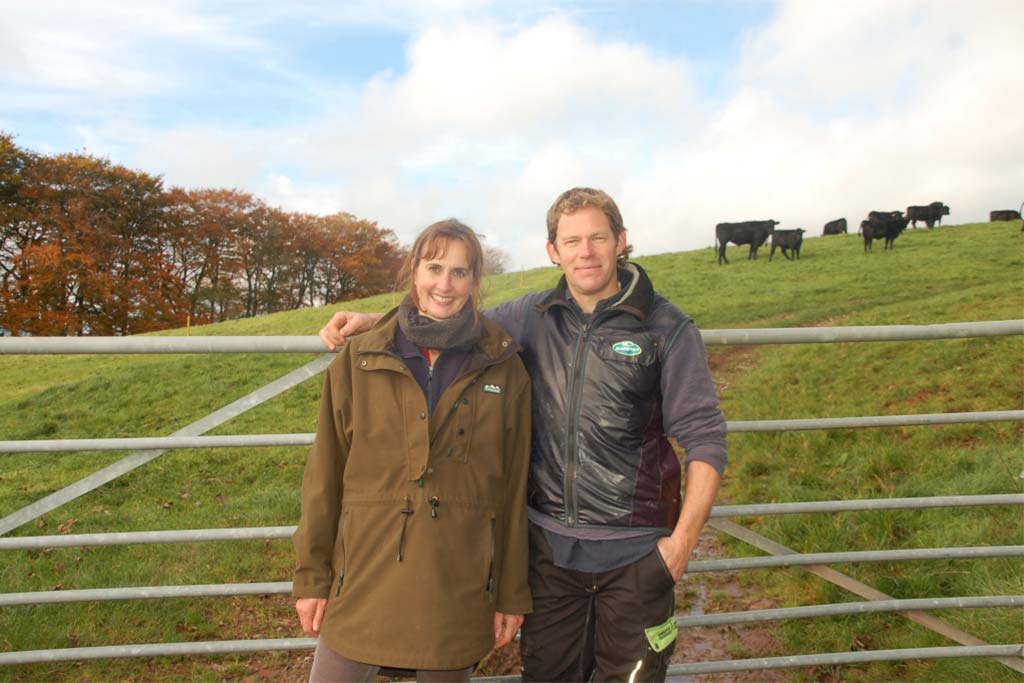
FARMER PROFILE
Paul & Nic Renison
“Our motivations for better grassland management are to be productive without the use of sprays and fertilisers, and to farm in an ecologically ‘right’ way – a regenerative way – so everything is getting better rather than worse”
Nov 2022 – Oct 2023
Turning funding into action
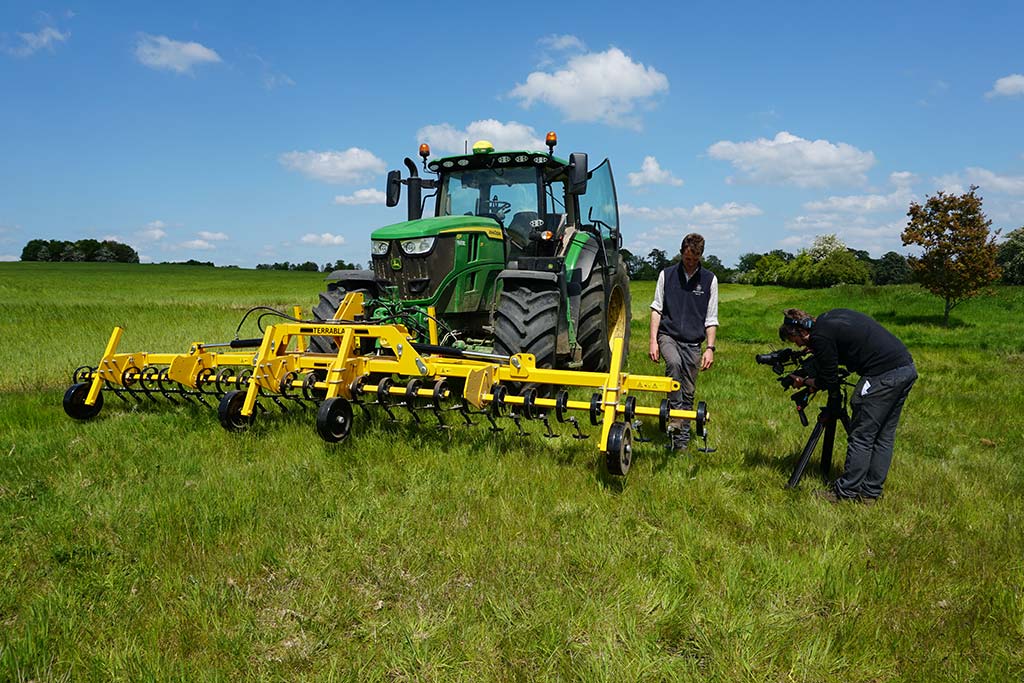

2023 marked the beginning of a new look for Agricology – our website got a makeover! This was a direct response to feedback as we endeavoured to improve the way the information we offer can be accessed, with thanks to one of our core funders over the years, the Esmée Fairbairn Foundation. As a charity, an avenue of funding we rely on is that of philanthropic funding. The Down to Earth project, launched in 2023, is an example of a project funded via this means, due to the generous funding of the Rothschild Foundation. Two events and four videos focusing on regenerative agriculture explored approaches being used to transition towards no / low input farming methods on the Waddesdon Estate and beyond whilst highlighting the potential for agroecological innovation.

We welcomed nearly 100 farmers and industry experts to Waddesdon for our Down to Earth events
Featured content
FARMER PROFILE
Stephen Briggs
“Agroforestry provides risk management against climate change and extreme weather events. It also means we can grow a mix of perennial and annual crops.”
FARMER PROFILE
Mark Lea
“We are keen to increase diversity of the crops, the business and the people we work with. Connecting with the people who eat and process our food makes us feel like food producers rather than commodity producers and is much more rewarding!”
DOWNLOAD
Diverse winter forages as an alternative to monocrop brassicas
The final report of an Innovative Farmers field lab in South West England (supported by FWAG) on diverse forage crops, which was formed due to concerns over damage that using winter brassica monocultures for grazing outwintering livestock can have on soil health, water and the wider environment.
Nov 2023 – Oct 2024
Uniting science, education and farming
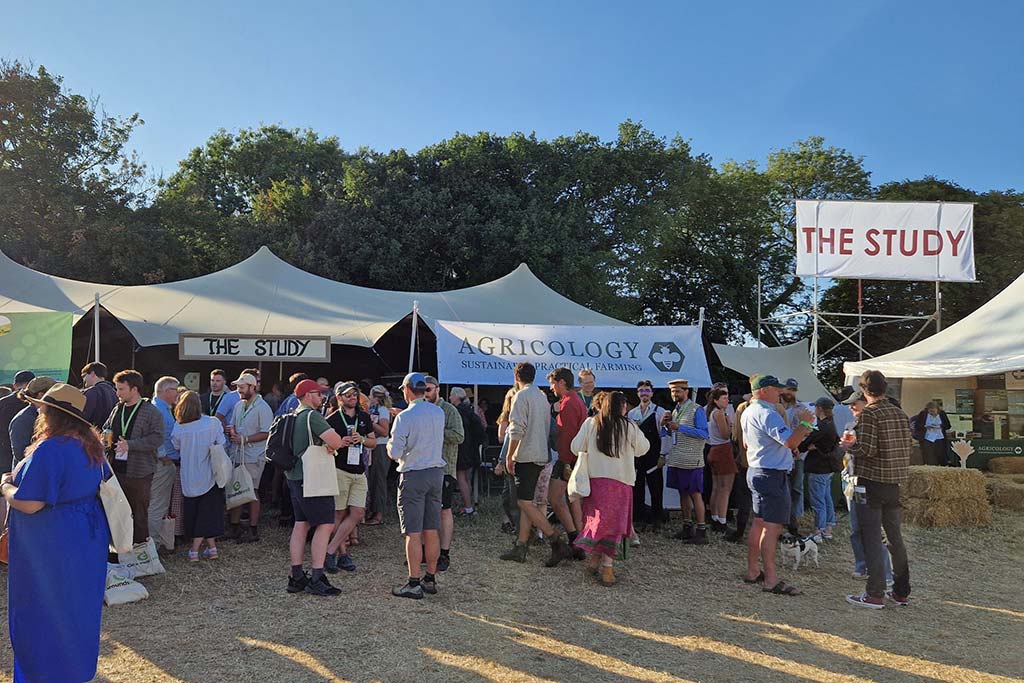

2024 was the year we united with the Agricultural Universities Council to sponsor ‘The Study’ session venue at Groundswell, where we put on ‘a veritable agri emporium of science, education and farming’, with a varied and stimulating range of talks over the two days. View recordings of the sessions we ran here. We also hosted information for the second-year running on the Countryside COP programme, which provided a platform for spokespeople from farming, local authority, education, research, and finance to collectively explore how the UK’s rural economy and agriculture can help tackle climate change and improve sustainability.

We published 7 new project pages – our highest number to date over the course of a year – bringing the total to 20
Featured content
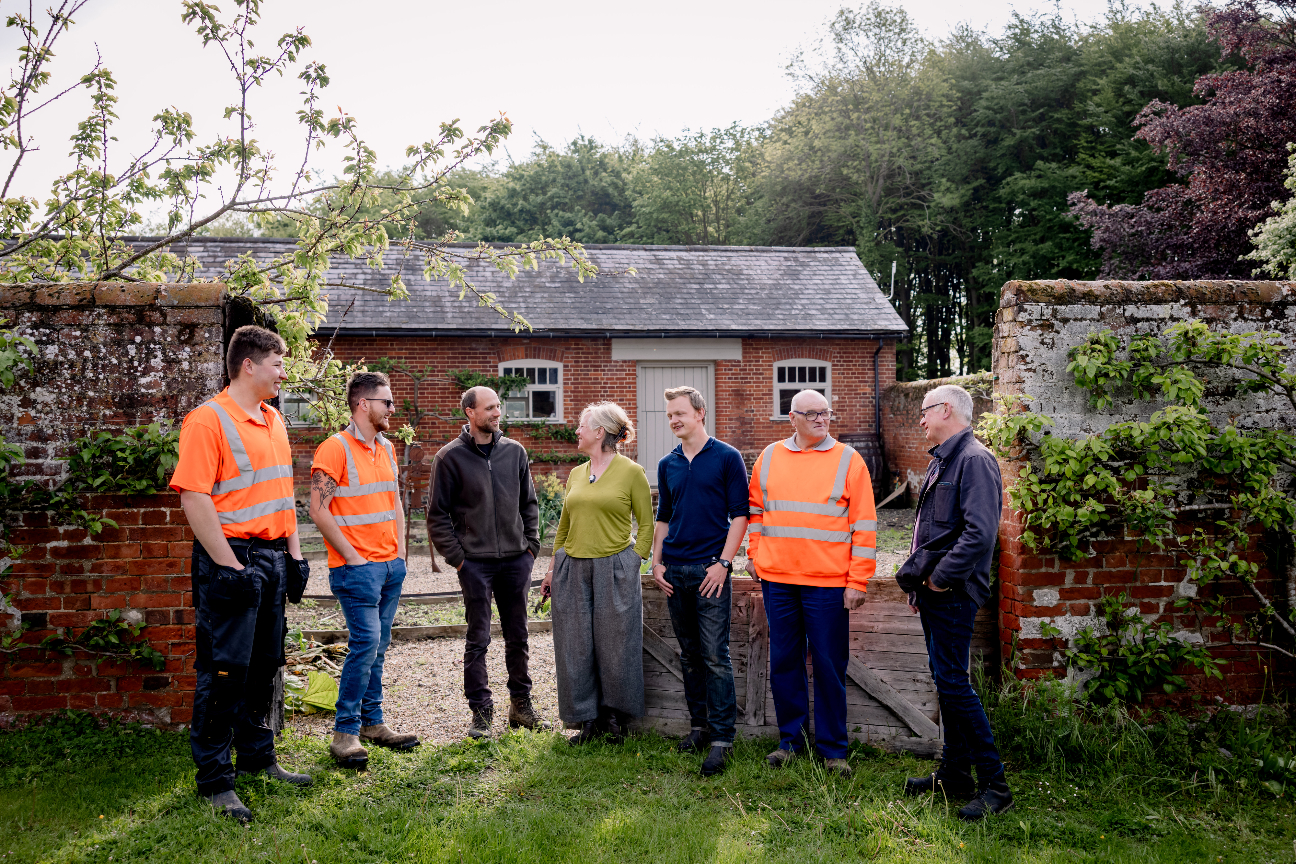
FARMER PROFILE
Pawsey Family & Team at Shimpling Park Farm
“While soil is of course important, four key areas have come to demand equal weight: soil, nature, adaptability and people. The drivers for us are obviously profitability, but it’s also about nature recovery.”
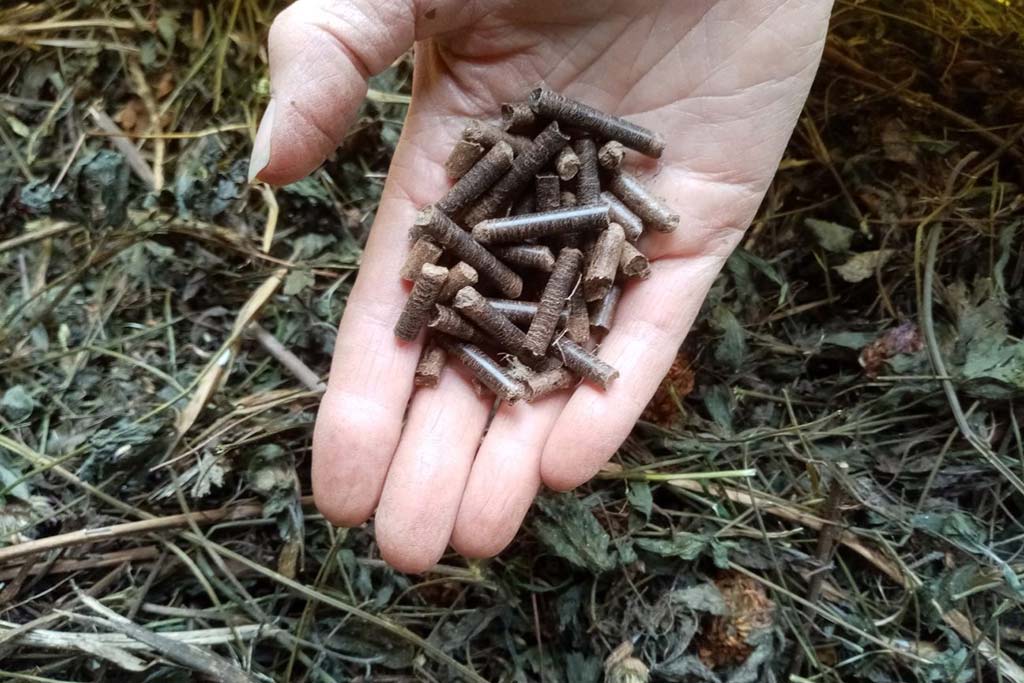
REPORT
Insights from the Perennial Green Manures project
This report summarises findings from the Perennial Green Manures (PGMs) project highlighting the potential of PGMs as fertilisers and further areas of research and innovation needed.
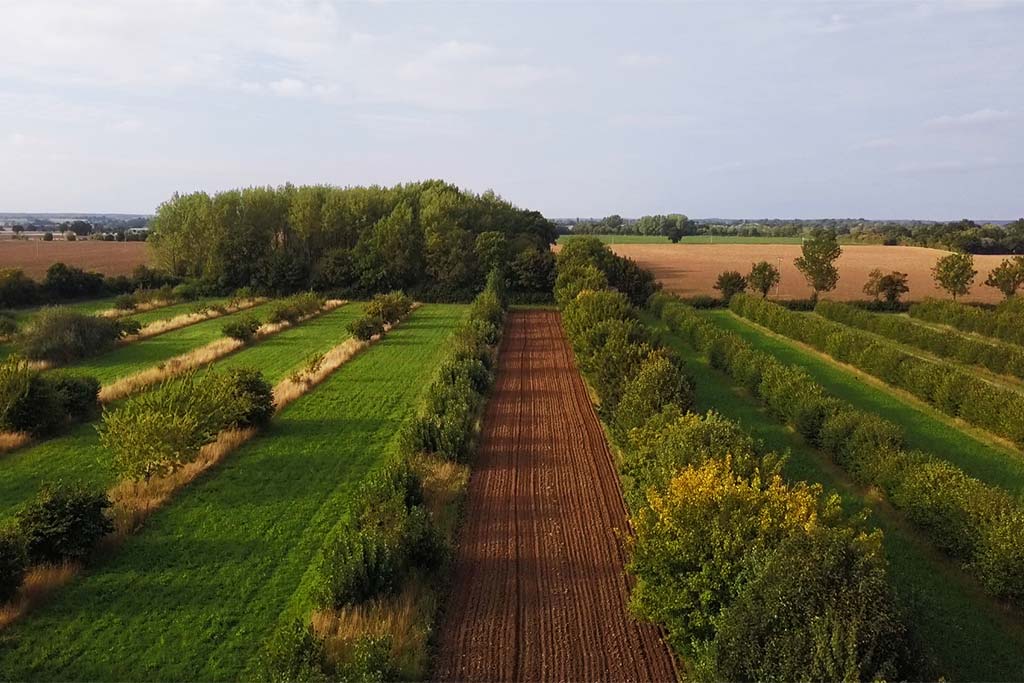
DOWNLOAD
Wakelyns Agroforestry: Resilience through diversity
This is a revised edition of this publication explaining the on-farm research carried out at the innovative and pioneering Wakelyns.
Nov 2024 – Oct 2025
Pushing the boundaries…
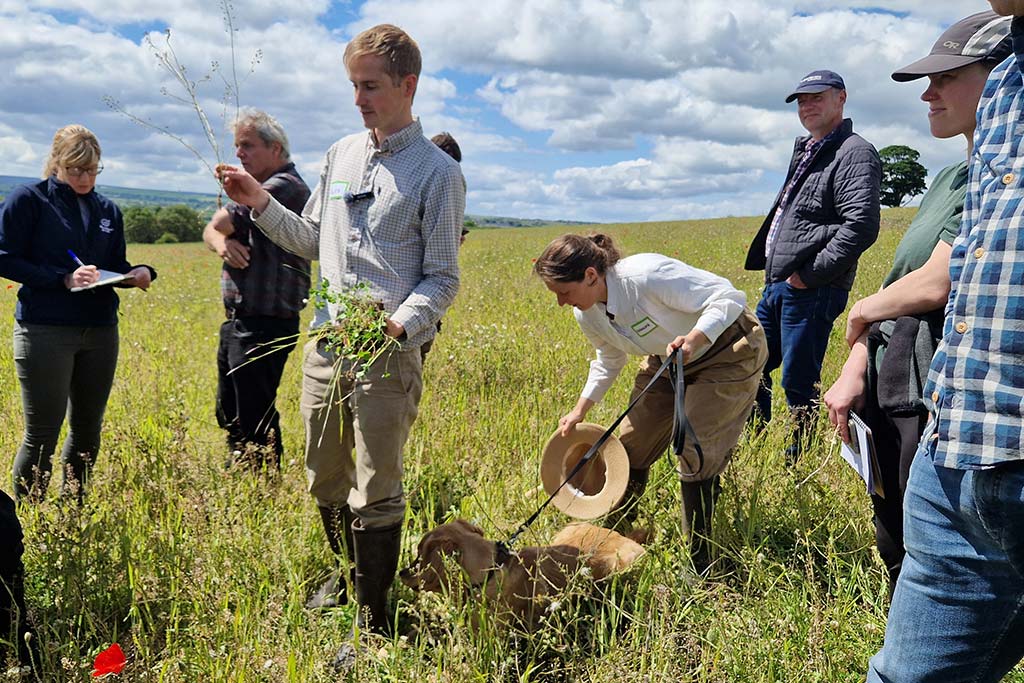

We endeavour to unite experience, research and innovation in exploring what can often be polarising or controversial topics. Our two most recent podcast series, Optimal Carrying Capacity and To Till or Not to Till being two such examples. The Optimal Carrying Capacity series built on an ORFC session organised by Agricology which presented ideas and approaches that looked to re-frame the case for livestock in the landscape and didn’t shy away from asking difficult questions.
We dived into 2025 with an emphasis on producing new information in new ways. Designed to help farmers make informed decisions about adopting living mulch systems in arable rotations, and building on interviews with UK farmers, research from an Innovative Farmers Field Lab, and ongoing studies by the ORC , our Living Mulches Technical Guide and Hub and accompanying video marked the first of this type of output from the Agricology team.

In November 2024 the Agricology newsletter reached over 3,000 subscribers for the first time
Featured content
VIDEO
Living Mulches – Technical Guide – video
In this video Matt England talks through his journey of trialling living mulches with the key learnings, observations and reflections that have come from it.
RESOURCE
Living Mulches – Technical Guide
This Agricology technical guide is designed to support farmers in making informed decisions about adopting living mulches in arable systems.
VIDEO
Mobile Dairy – Making it Work
In this video recorded at Groundswell, Matt Smee hosts a discussion with Tim May and Oliver Chedgey from Kingsclere Estate. Together, they explore how mobile dairy operations have been successfully integrated into their farming system.
Nov 2025 – beyond
New frontiers…
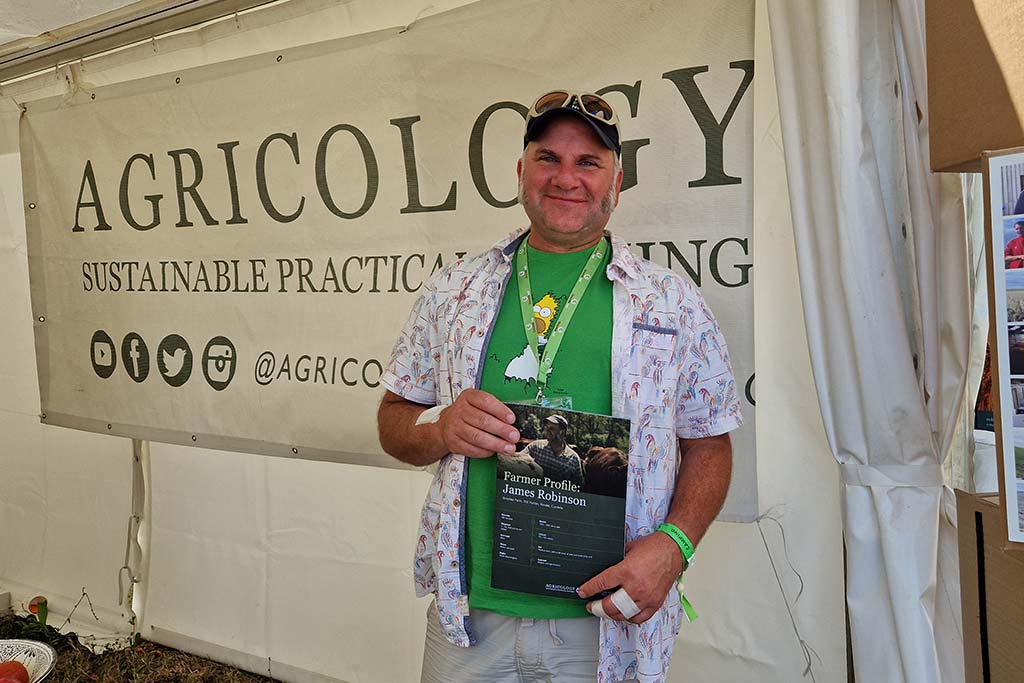

Some of our most recently published farmer profiles came out of a collaboration with one of our longstanding partners, the Woodland Trust, and resulted in production of downloadable printable pdfs (see an example here) which proved to be extremely popular handouts at the last Agroforestry Show.
Our Agroforestry Hub brings together a diverse range of material from our archive of case studies, research summaries, farmer profiles, blog posts, toolkits, videos and podcasts, to help farmers and land managers navigate their way through planning, establishing and maintaining agroforestry projects of all scales.

November 2025 marked a re-branding with a fresh new look. From our beginnings as a small platform connecting farmers and researchers, we’ve grown into a fully independent charity
Featured content
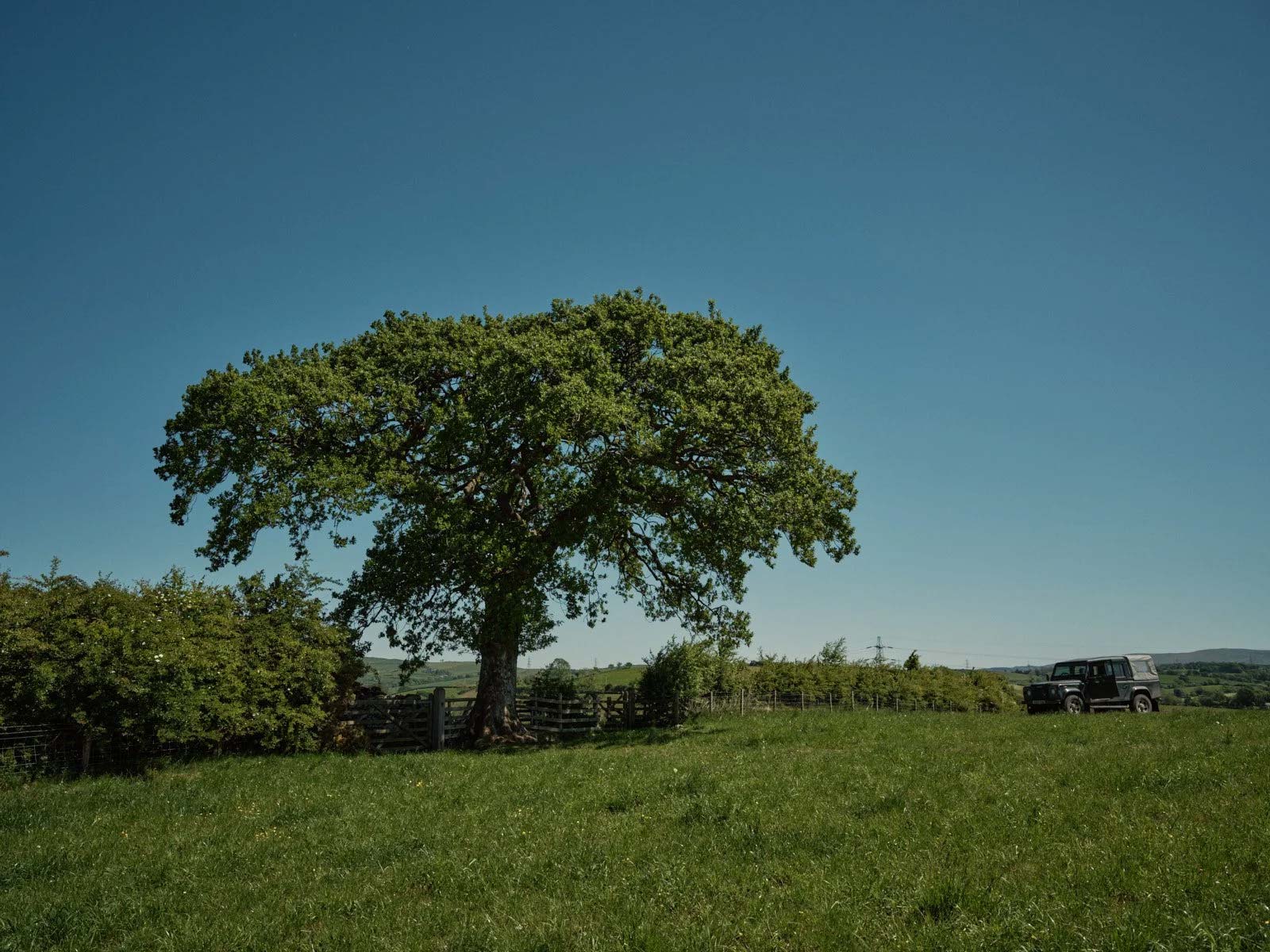
RESOURCE
Agroforestry Hub
Agricology has drawn together practical resources and case studies to help you navigate ways in which to integrate trees into farming systems.
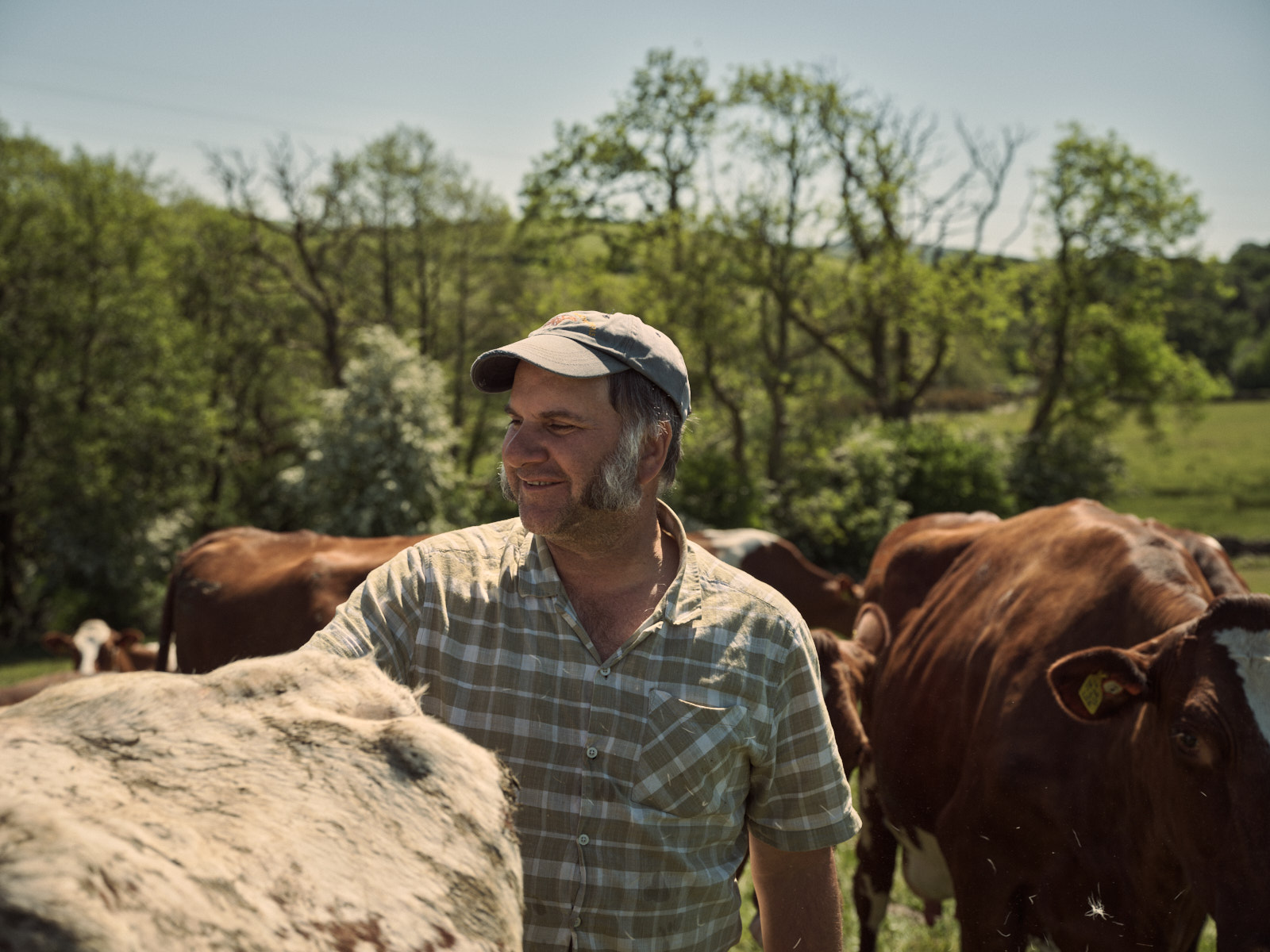
FARMER PROFILE
James Robinson
“It’s about using the animals or farming in a way that is right for the farm, this area, the topography of the land, the habitats we’ve got and that we want to establish, and not trying to push anything too far, but farming within the farm’s means.”
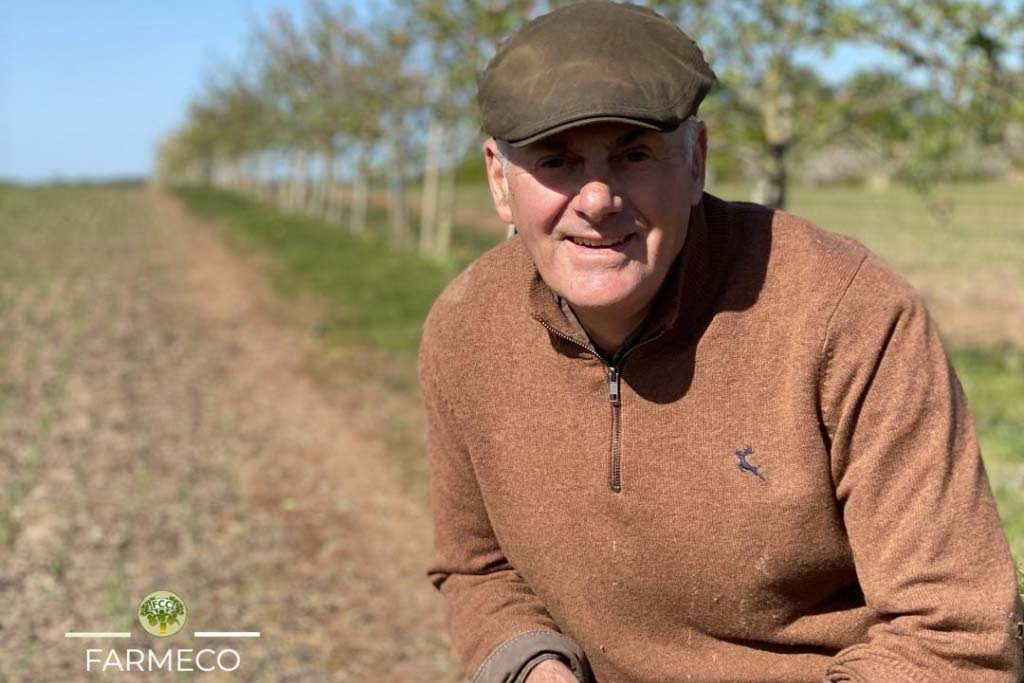
FARMER PROFILE
David Rose
“By planting trees and increasing the biodiversity, we have been able to completely phase out the use of artificial pesticides. We began the farm’s organic conversion in 2022 and are now close to achieving certification, which is a fantastic achievement, demonstrating the power of agroforestry as a pest-control tool.”
Organisation(s):
- Agricology
Evidence:
Copyright:
All Rights ReservedRelated theme:
- Agroforestry
- Animal health & welfare
- Beef cattle & sheep
- Biodiversity
- Biodynamic farming
- Cereals, oil seeds & pulses
- Climate
- Communities & education
- Compaction & cultivation
- Conservation agriculture
- Crop nutrition & fertility building
- Dairy cattle
- Drainage
- Grasslands & forage crops
- Integrated farming
- Markets & food systems
- Natural resources & waste
- Nutrition & public health
- Organic farming
- Organic matter
- People & skills
- Permaculture
- Pests & diseases
- Pollinators & ecological services
- Poultry
- Regenerative agriculture
- Roots & horticulture
- Rotations
- Soil biology
- Type, texture & structure
- Weeds
